Sydney’s hottest start-ups: Canva, SafetyCulture among the ones to watch
Sydney’s tech start-up scene is levelling up, building the jobs of the future and creating billionaires in the process. Here are the five hi-tech companies leading the charge.
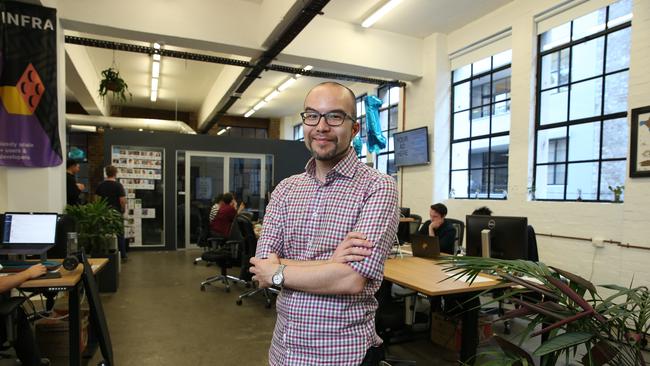
Sydney’s tech start-up scene is ready to level to up. Years after Atlassian pulled off a blockbuster Wall Street public listing – making its co-founders instant billionaires in the process – other young companies are following suit, changing the world with software and building the jobs of the future in the process. An upcoming 40-storey timber building at Central Station in Surry Hills is promising to serve as Sydney’s next tech hub, yet innovative companies all over the state are vying to be the next big thing.
Canva
Design start-up Canva has become virtually a household name across Australia, growing from its humble roots as an online tool to create school yearbooks in 2007, to now a tech powerhouse employing thousands of Australians and used by millions of users globally.
The company’s most recent capital raising valued it at $US16 billion, and it’s rumoured to be quietly plotting a lucrative public listing, which would likely be on Wall Street, like Atlassian before it.
Canva was born in the Perth bedroom of its founder, then-university student Melanie Perkins, but is now headquartered in Surry Hills, Sydney, with offices spread across Manila, Beijing, Wuhan, San Francisco and Austin.
The company is hiring hundreds of roles and is showing no signs of slowing down. It now has nearly 2000 employees, and 55 million users, while 250 million presentations have been created on its platform.
“For us, growth is what it’s all been about, from both the product side and the customer side,” co-founder Cameron Adams, a former Google executive, said in an interview.
“The last 12 months have been a bit of a rollercoaster for everyone, but our growth has powered on, and been even stronger than ever before.”
Mr Adams said a rise in teams using Canva to collaborate, particularly during the pandemic, has driven its spike in usage. The company’s mission is to ‘empower the world to design’, and teams use its software – which is either free or cheap depending on the tier – to quickly create logos, flyers and presentations.
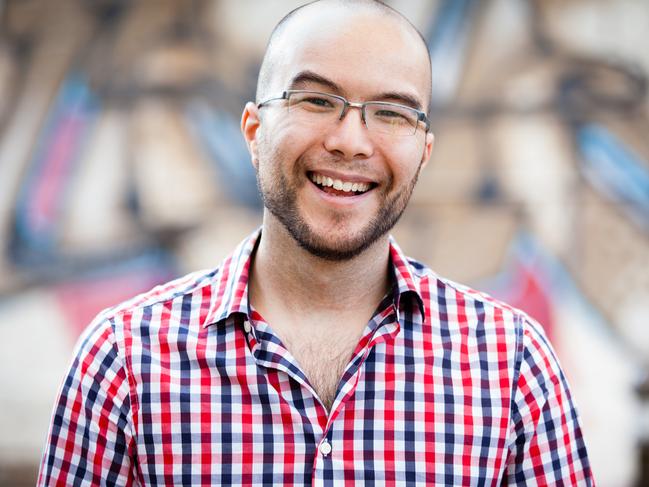
“With everyone working from home, collaboration has really taken off. We’re giving people new tools to communicate with,” Mr Adams said. “Canva’s not just a social media design tool, people are using it for any type of digital collaboration.
The company has cemented its label as Australia’s fastest-growing start-up, something its co-founders don’t take lightly.
“The journey has been pretty and it’s not something you realise every day. We just often have our heads down focusing on what we’re building,” Mr Adams said. “I’d describe where we’re heading as being big and crazy, we’re encouraging all our team members to stretch themselves and really reach for the stars.”
The executive added he’d seen massive changes in Australia’s start-up ecosystem over the last decade, and is expecting further change to come. “When we were first kicking off with Canva, it was pretty hard to stay in Australia. We eventually ended up having to go to the United States to talk to investors and get funding.
“Around 2012 was when doing a start-up in Australia became a really viable thing, and you saw firms like Blackbird and Airtree start up around that time.
“We actually found it really hard to recruit people in the early days just because they were really risk averse, and they didn‘t value stock as much. Now it’s become easier to convince people to value stock equity and take a bit of risk on something that is going to grow into something really big.”
Which other Australian start-up/tech company impresses you and why?
“I’m interested in climate tech and people making a contribution to positively affecting climate change. And a lot of people coming out of tech companies like ours are now starting their own start-ups. Dovetail, a user experience tool, I really enjoy dropping and seeing what they’re doing.
“I invested in a very early-stage company called Uluu, which is focusing on bio plastics made from seaweed. It is really interesting, because it’s a lot more sustainable, it uses a natural resource, and obviously doesn’t use fossil fuels that current plastic uses. There’s another company here in Sydney called Karst, they’re focusing on sustainable stationery and paper and reusing wastes from the building industry. So it’s a fantastic win-win because they’ve got super high quality products, also made from sustainable means. So, very strong environmental impact thread through there.’’
SafetyCulture
SafetyCulture – which counts Atlassian co-CEO Scott Farquhar, Morgan Stanley executive Paul Kwan and Blackbird Ventures managing director Rick Baker as advisers – has grown from being a modest safety checklist app, to a fully-featured holistic platform for a company‘s safety and compliance needs.
The start-up was founded in a Townsville garage but now employs hundreds of people and has grown to become one of Sydney’s hottest tech companies to watch.
The company was most recently valued at a whopping $2.2 billion, smashing past its previous ‘unicorn’ status from April 2020, receiving funding from former Australian prime minister Malcolm Turnbull and his wife Lucy Turnbull and heavy-hitting investors including Index Ventures TDM Growth Partners.
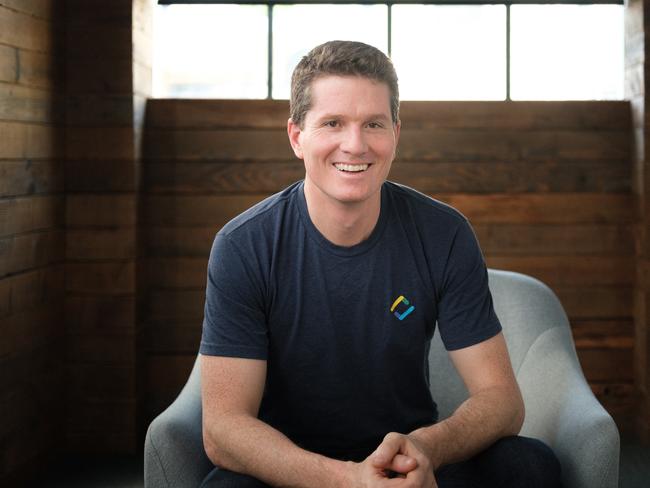
“We recently surpassed 100 million completed inspections in our flagship product, iAuditor, and this new funding allows us to continue that momentum,” SafetyCulture founder and CEO Luke Anear said.
“It also allows us to invest in the development of our platform which will ensure the information captured by workers can easily be acted upon to improve quality, efficiency, and safety in the workplace.
SafetyCulture currently helps 28,000 companies improve every day by streamlining the flow of critical information through their mobile-first platform, and its platform is used across a wide range of industries including manufacturing, hospitality, retail and logistics.
The company, which is now headquartered in Sydney with offices in Townsville, Kansas City, Manchester (UK) and Manila, is busy rapidly expanding its global product and engineering teams. It has over 600 employees across its offices.
“Up until now it’s very much felt that I was the person driving the business. And now we’re seeing the maturity has increased to the point where it’s a team of people driving the business,” Mr Anear said.
“The difference is that I was the one making a lot of the big decisions, and now we‘re empowering an executive team around me to make great decisions and move quicker than I could have alone.“
Which other Australian start-up/tech company impresses you and why?
“One start-up I’ve watched closely for years is EdApp who offer mobile-first training. I first met Darren Winterford and his EdApp team of eight people in Manly in 2017. I’ve seen first-hand what a great leader he is and how he’s built a business that now delivers 50,000 lessons a day in 90 countries. We invested in their business in 2018 and they became part of SafetyCulture in 2020. I think more and more we’ll see founders backing each other and teaming up to solve problems and build better businesses.”
Deputy
Cafes, restaurants and other hospitality businesses across the globe use Sydney-based workforce management software start-up Deputy to modernise their HR processes and simplify timesheets and workplace communication.
Before starting Deputy 12 years ago, chief executive Ashik Ahmed began his first job at Hungry Jacks in 1994.
He was the first in his family to find a job after migrating from Bangladesh.
Now, Mr Ahmed has built up Deputy into one of the nation’s leading tech start-ups, working with more than 250,000 workplaces internationally, with a motto of ‘simplify shift work’.
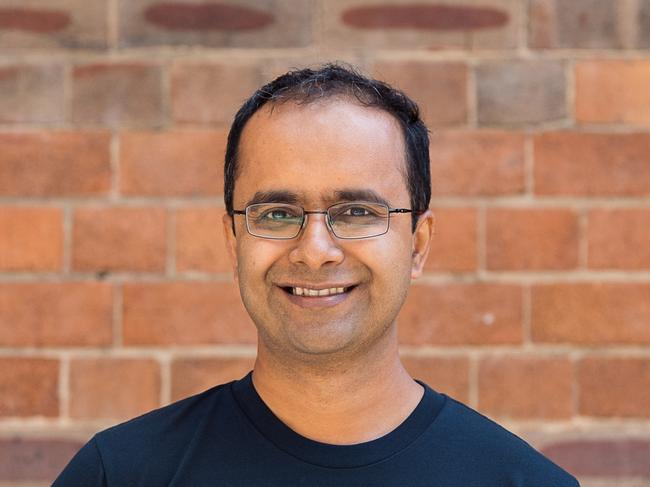
It has offices in Sydney, San Francisco, Atlanta and London, and has bounced back from a difficult 2020 – in which Covid-19 ravaged the global hospitality industry – to resume its rapid growth trajectory.
The company is estimated to be worth nearly $1 billion, which would give it the esteemed ‘unicorn’ status.
Mr Ahmed has held onto about a third of the business, with co-founder Steve Shelley owning another third – and Deputy employees most of the rest.
“Starting a business is like climbing a mountain,” Mr Ahmed said. ”It‘s one thing to climb a mountain to 1000 metres, then to climb it to 6000 metres is another matter. There are different challenges you face at every step along the journey.
“My wisdom for any founder is that it‘s not just about what it’s like today, it’s about what it’s going to look like 12 months from now, then 36 and 48 months from now as you scale your business.”
Which other Australian start-up/tech company impresses you and why?
Mr Ahmed looks up to Atlassian for putting the Australian tech industry on the world map, and Xero for making small business software beautiful. “As a customer and user, I know how much it has meant for me.”
Stake
US stocks like Tesla, Apple and Gamestop are all the rage with investors, and Australian fintech Stake is helping Australians take advantage. The start-up closed a $40m funding round from Tiger Global and DST Global this year and is now expanding globally.
Stake, founded by Matt Leibowitz in Sydney in 2017, was the first company to offer commission-free brokerage for customers to buy and sell US stocks in Australia, and Mr Leibowitz says the company is now ready to offer its app to customers in even more countries.
In the past year alone, Stake’s customer base has grown by more than six times, and it now has more than 330,000 customers globally.

“Our mission drives our focus to put the US stock market at the fingertips of investors and traders around the world. To achieve this, we push the boundaries with innovative technology and systems. We listen to our customers. We only work with partners who share our attitudes and we don’t compromise on safety and security.”
The Stake team describes its aim as to democratise global share markets in order to bring the world’s largest and “most dynamic” market to the rest of the world.
“We’re really excited to get to this point but it’s just the start. We set out to change the game for retail investors, and were self-funded for the first four years of our journey. We’ve proven the model and now have the chance to expand our product and bring our zero-brokerage service to more retail investors,” Mr Leibowitz said.
“We started with US shares, but that’s just the beginning. Our DNA is embedded in access, and we’ve got exciting plans to give Aussies even more opportunities both in the short-and long-term’’
Which other Australian start-up/tech company impresses you and why?
“I am constantly impressed by Larry and the team at Zip, and have been lucky to follow their journey closely, being an early investor in the business since 2013.
“The way Larry has built the company, by creating a strong internal culture, and executed on Zip’s ambitions both locally and globally to provide a great proposition for merchants and customers.
“Stake has followed in similar suit, making Australia its first and core market and then delivering that again overseas.”
WithYouWithMe
Much has been made of how Australia treats its veterans, and WithYouWithMe is a tech start-up doing something about it.
The Sydney-based company, founded by ex-veterans, has attracted thousands of Australian military veterans to its program, which helps them gain meaningful employment in high-growth areas including cyber security, robotics and data analytics.
George Frazis, Bank of Queensland managing director and a former engineer in the Royal Australian Airforce, said he has experienced first-hand how the skills developed through military service can translate to a long-term business career.
“Every Defence member receives exceptional leadership training; they know how to work in cross-functional teams in an agile manner and are extremely strategic and resilient. Veterans work hard and understand how to deliver on a mission and be motivated by a higher purpose.”
According to WithYouWithMe co-founder Luke Rix, around 5500 military personnel leave every year, with around 4000 of those then active job seekers. Most are under 30, and have had about $2 million worth of training over their careers to date.
“Right now WithYouWithMe’s focus is all on getting people into new tech careers and making tech roles more accessible,” Mr Rix said.
“This drives everything we do from perfecting the WYWM Potential platform to help individuals find their best tech career match, to building new training courses in demand careers like Data Analytics and Cyber Security.
“Over the next year we will be looking to launch a range of new courses and keep improving the platform to allow more organisations to hire talent based on potential, not on experience.
“We‘re also focused on building out operations in Canada, the US and the UK, with the team growing quickly across the globe.”
For tech companies, they get job-ready, hungry workers and can save recruitment costs by 90 per cent, while veterans gain access to the jobs of the future. A genuine win-win.
Which other Australian start-up/tech company impresses you and why?
“BenchOn is a great platform helping companies manage their workforces in new ways, focused on helping companies tap into other organisation‘s under-utilised talent – something which we saw a big need for during Covid. Its founder, Tim Walmsley, is also an Australian military veteran, which is great to see at the helm of a growing tech company.”




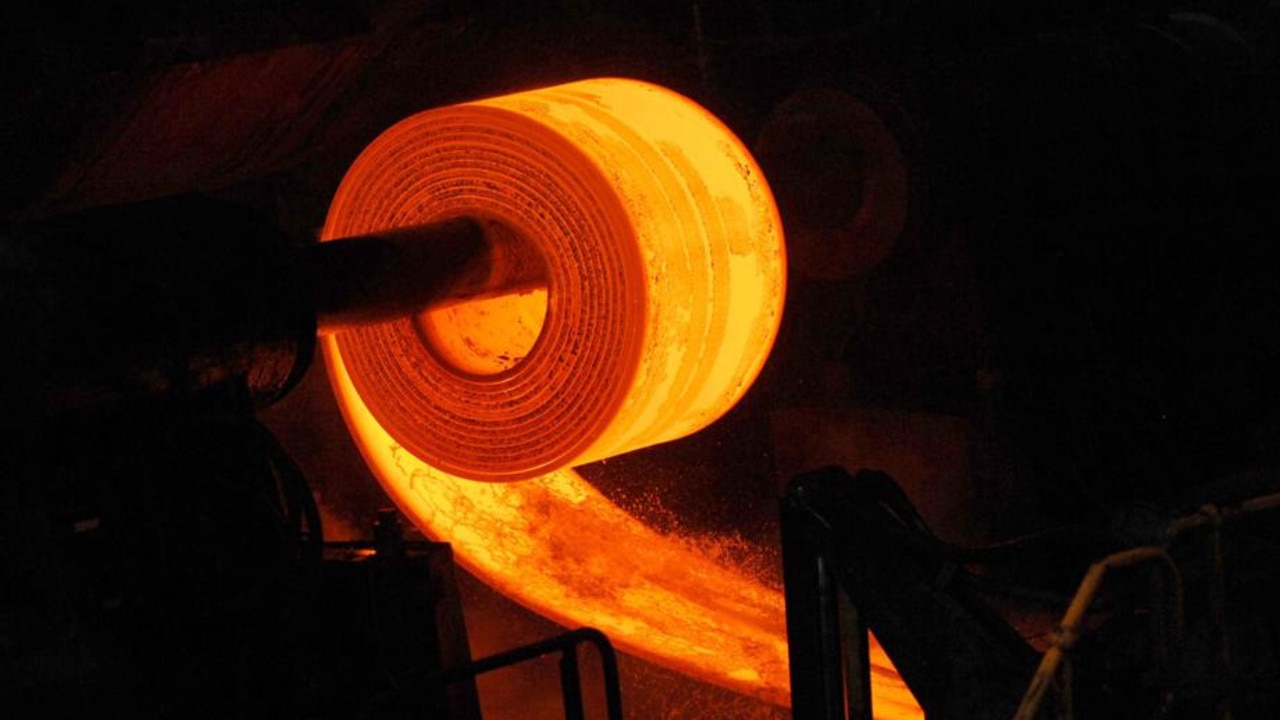
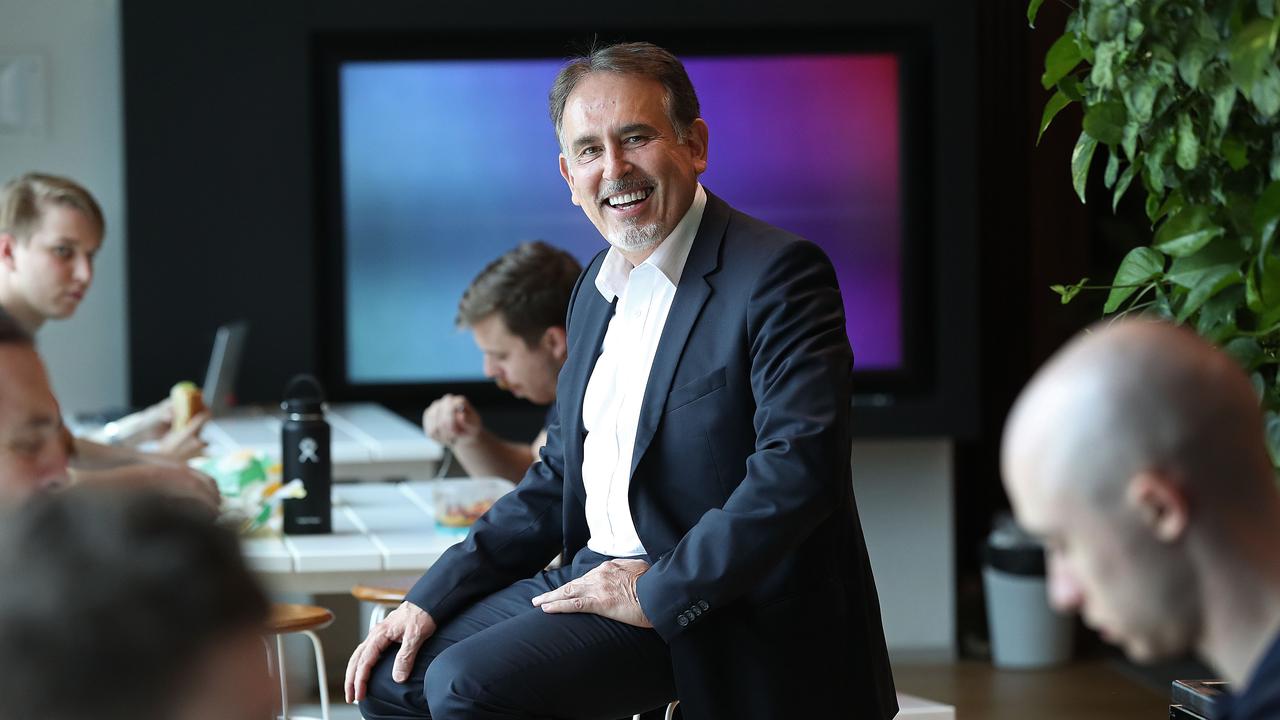
To join the conversation, please log in. Don't have an account? Register
Join the conversation, you are commenting as Logout